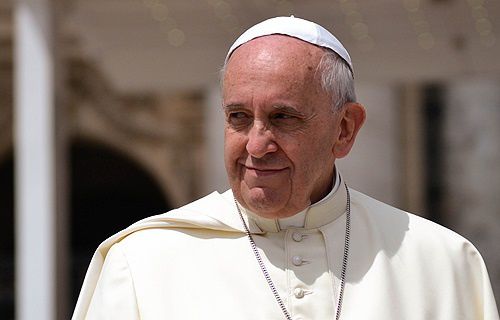In his daily mass on Tuesday Pope Francis warned about the hypocrisy of those who do good in order to be seen, saying that true faith is practiced through acts of charity that go beyond outward rituals. “Jesus condemns this cosmetic spirituality, (which attempts to) look good, beautiful — but the truth inside is something else,” the Pope said to those present in the Vatican’s Saint Martha guesthouse for his Oct. 14 daily Mass. He condemns those who have “good manners but bad habits, those habits that you don’t see, but are hidden.” The Roman Pontiff took his cue from the day’s Gospel reading from Luke chapter 11 in which Jesus is invited to the house of a Pharisee for dinner, and surprises his host by not performing the standard washing ritual before meals. He then condemns the false piety of those who desire others to see their good works. For these people everything seems to be in order while they walk through the streets pretending to be a little weak when they fast, he said, however the two adjectives Jesus uses to describe this attitude are “greed and wickedness.” What the Lord invites the Pharisee to do is to give alms, the Bishop of Rome noted, which traditionally, in both the Old and New Testaments, is seen as an exemplary form of justice. Such works of charity are necessary, he explained, because no matter how important it might be, “the law on its own does not save.” “That which avails is faith — which faith? That which works through love,” the pontiff explained, saying that a faith which only consists in reciting the Creed is static and inactive. Rather, what succeeds through Christ “is the hard work that comes from faith, or rather the faith that works through charity,” he said, and that includes almsgiving in the sense of detaching oneself “from the dictatorship of money, from the idolatry of lucre.” “Every disordered desire distances us from Jesus Christ,” the Pope explained, and went on to recount the story of how his late brother and previous superior general of the Jesuits, Father Pedro Arrupe, once had a strong experience with this type of hypocrisy. Pope Francis recalled how one day a very wealthy woman had invited Fr. Arrupe somewhere in order to give him a sum of money for the Jesuit missions in Japan, to which he was very committed. When this woman gave him the envelope Fr. Arrupe suffered “great humiliation,” because she did it on the doorstep in front of a building on the street, with reporters and photographers lined up. But he accepted the money at that moment for the sake of “the poor people in Japan,” the pontiff continued. However when he opened the envelope later, there was only 10 dollars inside. In light of this, let us ask ourselves if ours is “a cosmetically Christian life, of appearances, or if it is a Christian life of faith that is active in charity,” the Pope said. He concluded by explaining how Jesus advises us not to “sound the trumpet” or give only out of our abundance, but to give like the woman in the Gospel who gave her last two coins to the poor. She gave everything, the Pope noted, and Jesus praises her for it because “she did it half-secretly, for she was ashamed not to be able to give more.”

